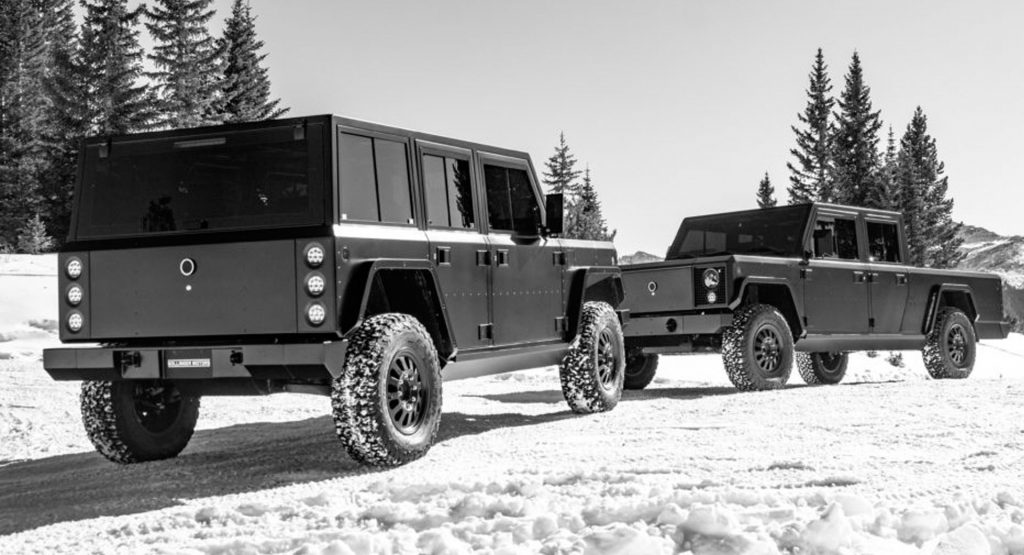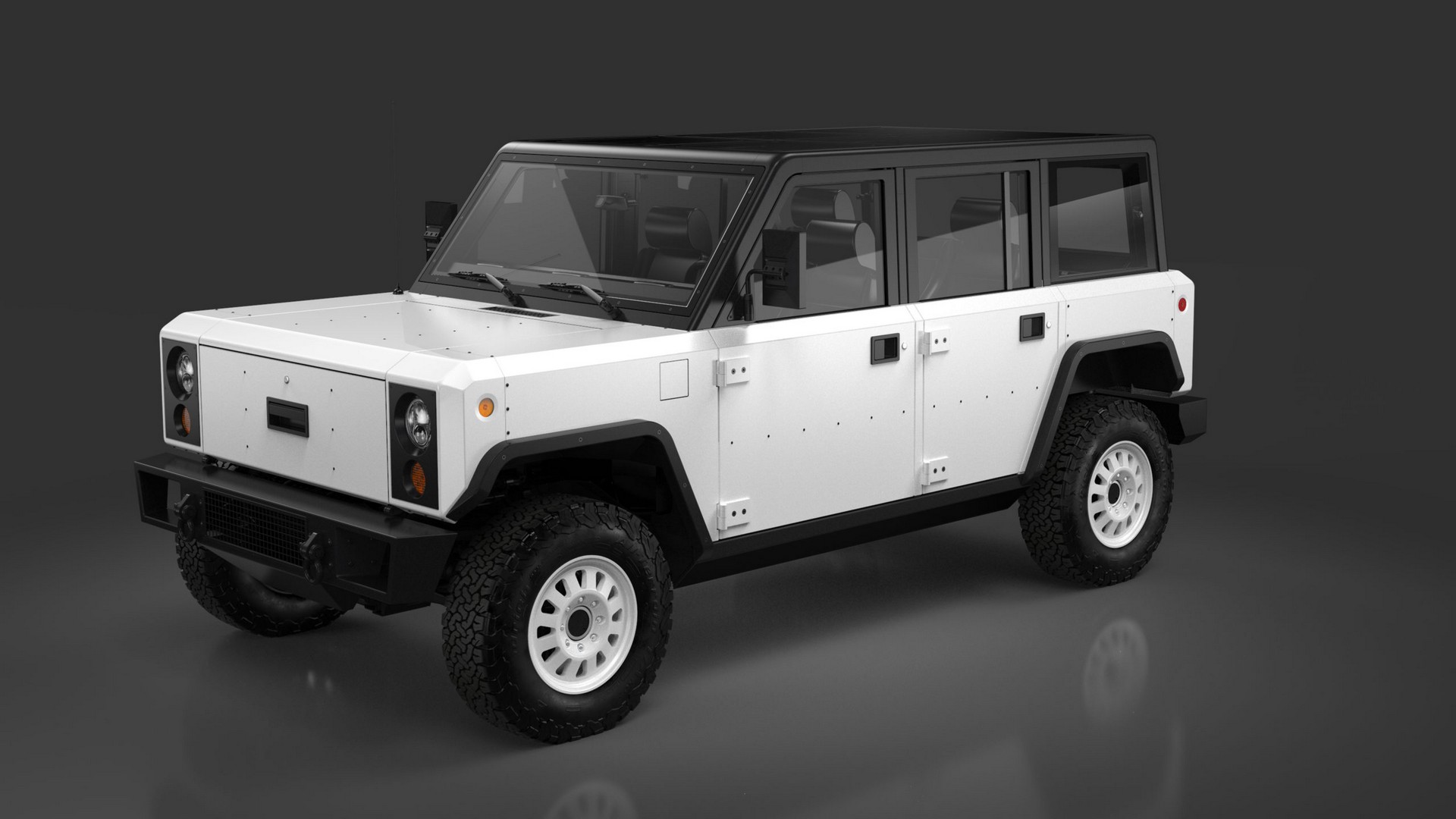The electric truck wars are heating up as the GMC Hummer EV and Rivian R1T have already gone into production, and will soon be followed by the Chevrolet Silverado EV, GMC Sierra EV, Ford F-150 Lightning, and Tesla Cybertruck.
There are even more electric trucks on the horizon, but the Bollinger B2 isn’t one of them. Despite being introduced in 2018 and slated for production in 2020, the truck has been delayed and now postponed indefinitely.
In a video, Bollinger Motors CEO Robert Bollinger said the company started development on the B1 and B2 in 2015 and put “countless hours of hard work and passion” into creating the “powerful, innovative and distinct” vehicles. Despite this, the company has decided to postpone their development and shift their focus to commercial vehicles.
Also Read: Bollinger Unveils The B1 And B2 In Production Form
The change is sure to upset fans, but Bollinger said the switch is a “vitally important move” that will enable them to “continue our development of our technology, and make a real impact in the green future of automotive.” That’s far from an explanation, but Bollinger thanked the company’s supporters and reservation holders.
Speaking of the latter, the company said they have emailed reservation holders and will be “sending back deposits as quickly as possible” via Venmo or paper check. Of course, that’s little consolation for people who have been anxiously awaiting their vehicles.
As a refresher, the production-intent B1 and B2 were introduced in late 2020 and were slated to have a 142 kWh battery pack and a dual motor all-wheel drive system with a combined output of 614 hp (458 kW / 623 PS) and 668 lb-ft (906 Nm) of torque. This was slated to enable the models to accelerate from 0-60 mph (0-96 km/h) in 4.5 seconds and have a range in excess of 200 miles (322 km).
The vehicles were certainly interesting, but they were a questionable value as they cost more than the GMC Hummer EV and SUV, while also offering worse range and performance. As a result, their appeal was bound to be limited and it seems the shift to commercial vehicles is an acknowledgement of this.
















